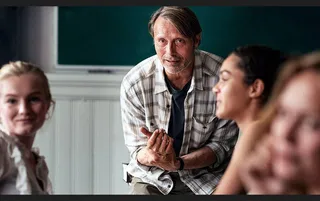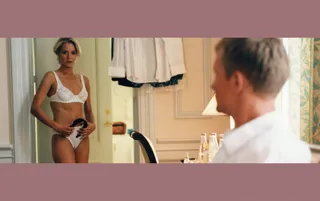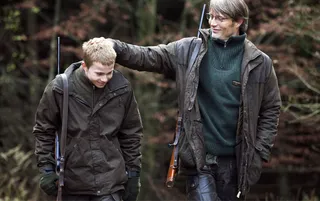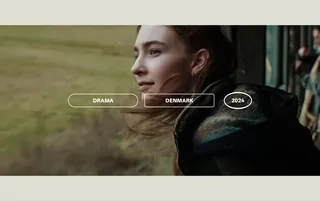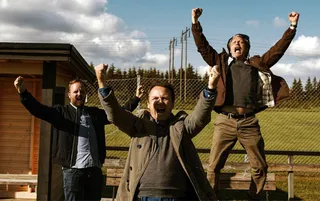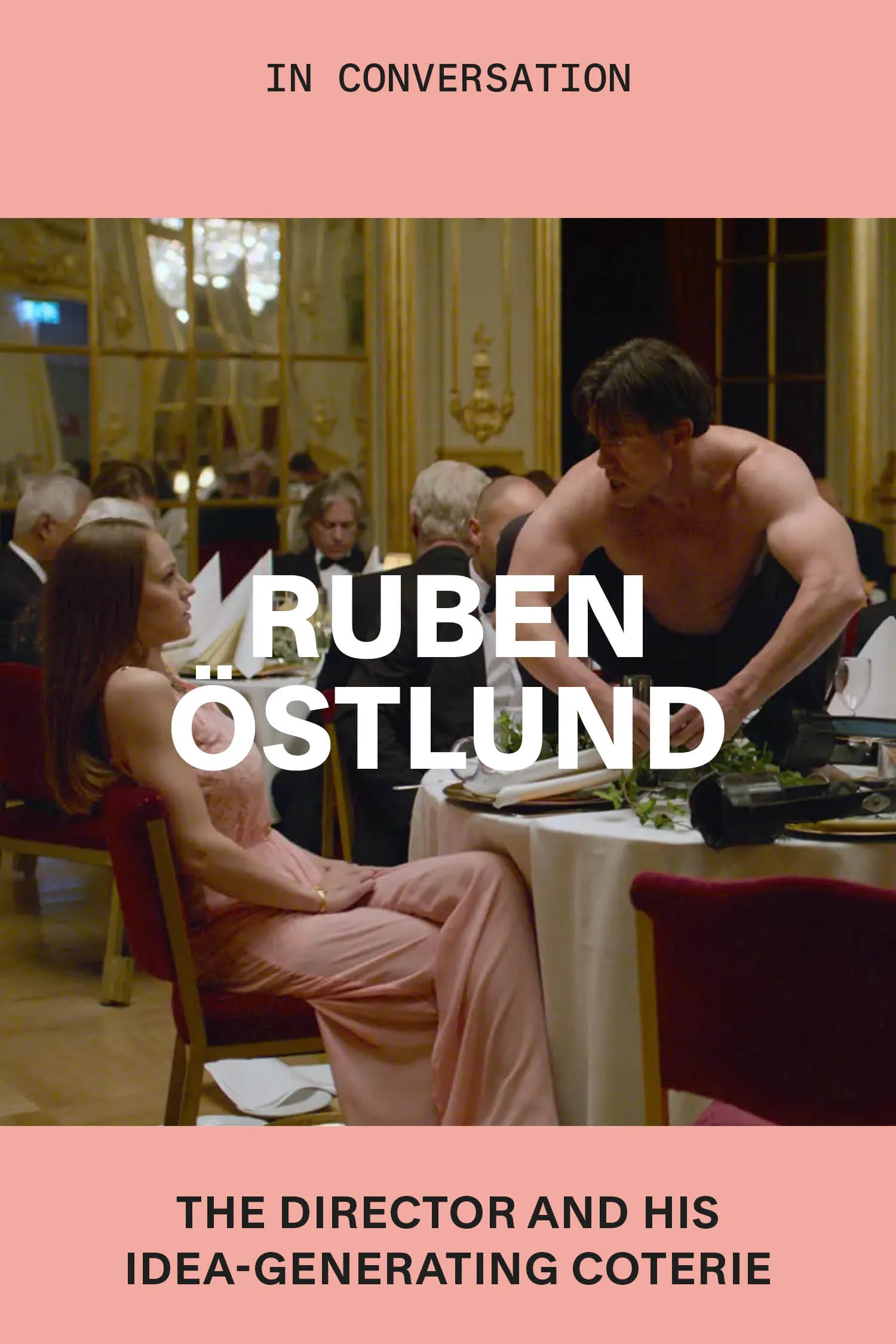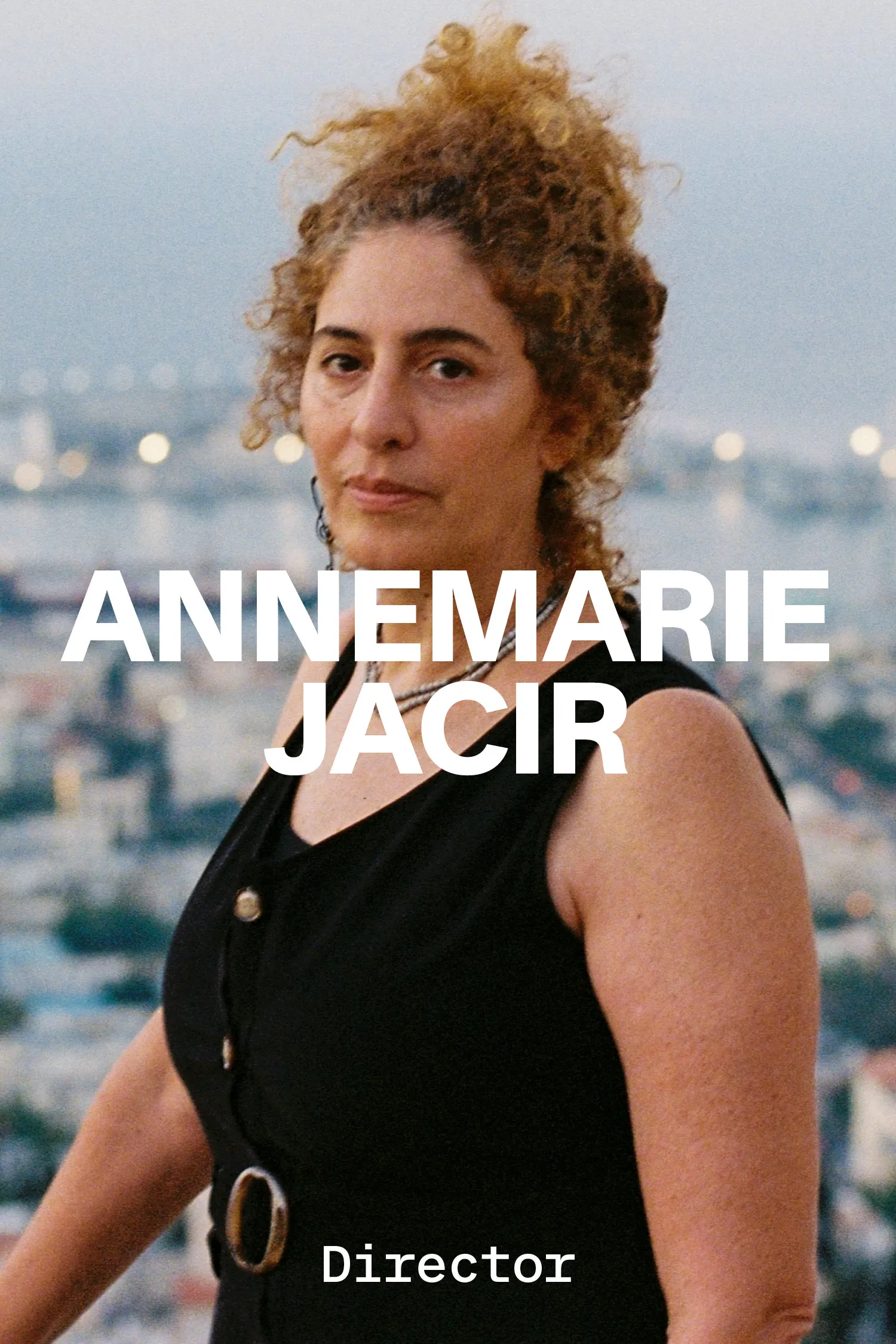Thomas Vinterberg's Family Albums
By Wendy Mitchell
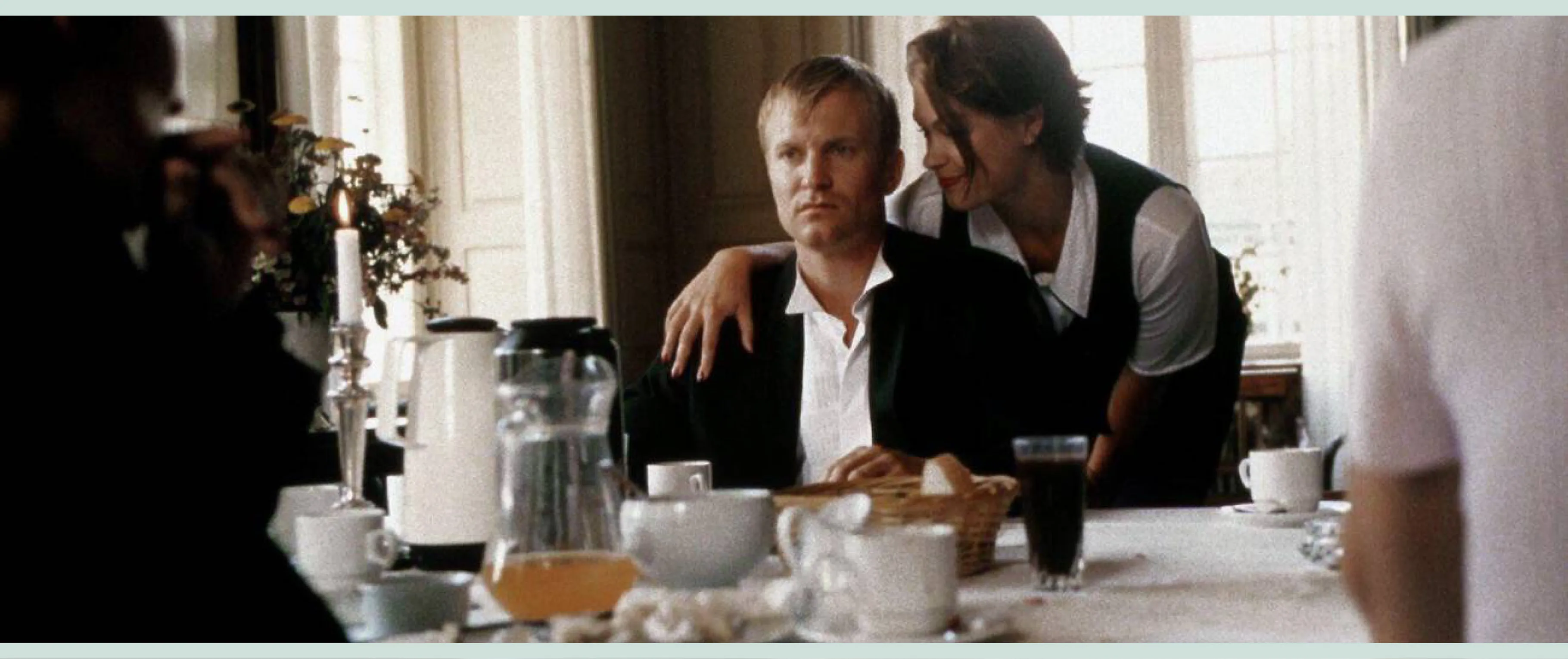
Festen (The Celebration), dir. Thomas Vinterberg, 1998
Thomas Vinterberg’s Family Albums
Wendy Mitchell
The Danish director on the one choice we don’t get to make
March 13, 2025

Thomas Vinterberg on the set of Another Round, 2020
Family has arguably been the major theme of writer-director Thomas Vinterberg’s career. The golden child of the Danish film industry was one of the founders of the Dogme 95 movement, giving birth to the radical initiative’s first production, Festen (The Celebration, 1998). In that landmark film a family gathers to celebrate the 60th birthday of their patriarch only to learn he is a sex abuser—a revelation that’s completely ignored by all his relatives. It’s one of the greatest cinematic narratives showing how families can fuck you up, forever.
Vinterberg continued his exploration of family dynamics in the Academy Award–nominated The Hunt (2012), in which a village perceives a schoolteacher (Mads Mikkelsen) as a threat to their children, straining all kinds of relationships. The Commune (2016) plays with the experience of group living and how it challenges the couple at the heart of the house.
Vinterberg spent lockdown writing his first television series, the seven-episode drama Families Like Ours (2024). Set in the near future, when rising water levels have forced the entire nation of Denmark to be evacuated, the thought-provoking and scarily believable character study about a group of ordinary citizens navigating a new world order brings climate change to the heart of Europe. Vinterberg cast his own wife—Helene Reingaard Neumann, an actor as well as a vicar—in the series, marking the sixth time they’ve worked together.
In 2019, the couple lived through the ultimate family tragedy during the making of Vinterberg’s intoxicating 11th feature Another Round, when Reingaard Neumann was involved in a car crash that tragically took the life of their teenage daughter Ida. The director dedicated the finished film—about four school teachers who unite (albeit using copious amounts of alcohol) to cope with life’s travails and find moral purpose—to his child, making the subsequent 2021 Best International Feature Film Oscar win particularly poignant. Talking to Galerie, Vinterberg reflects on how his work is inspired by his experiences growing up—directly, in the case of The Commune—and how family is at the heart of his oeuvre.
![]()
Mads Mikkelsen in Another Round
![]()
Trine Dyrholm and Ulrich Thomsen in Festen (The Celebration)
What sparked the concept for Families Like Ours?
The idea came to me several years ago while I was staying in Paris for work. It was a Sunday afternoon, and I was feeling rejected by the local café—I’d been going there for a year and a half and they still didn’t know who I was, they still just treated me like any other tourist. I missed my daughters at home, and things began to grow in my mind: What if we were all expelled from home? What if we lost what we love dearly? What if we were all separated from one another? I’ve always been interested in how people react in crisis. Who would you fit into your lifeboat…and put another way, who would you leave out? I’m not interested in showing big floods, as you can see. I’m interested in the emotional reactions of human beings. I was influenced by my daughters’ worrying about our planet as well.
This story has so many layers—young love against the odds, nationalism and patriotism, financial and class struggles, as well as reflecting on the climate and the refugee crises. So why tell this particular story through the lens of ordinary people instead of politicians in a boardroom or a group of scientists or emergency workers?
I was curious more existentially about how Danes would, as part of Western society, react if situations were flipped and we became the refugees. What choices would we make for our families? Like [high school student] Laura’s choice: Does she go with her mom or does she go with her dad? If she chooses her mom, is it out of pure love and generosity and helpfulness or is it because there’s a dependency? These are interesting universal questions. The politicians are incredibly interesting as well, and they sneak in through the character of Nikolaj [Laura’s uncle, who works in the Danish government], and I wish I had more room for those political debates. But we’ve had Borgen. If this has to be personal for me and have my fingerprint, it has to revolve around several families.
Not all of the characters in Families Like Ours are blood relatives—for instance, Laura’s boyfriend, Elias, becomes an adopted member of her family. What was important about this character?
Elias has the freedom of not worrying and has the freedom of not being part of a family. His goodbye is probably less complicated than everyone else’s. Elias is floating as a free spirit in this and represents hope and also to some extent he is me as a youngster, because I grew up in a commune. I have very loving parents but they left me very much alone and I got adopted by several girlfriends’ families, so maybe it’s also a way that I could identify myself with him.
“There can be a claustrophobia and a sense of destiny in being with these people that you haven’t chosen.”
With Another Round, you also have these guys whose friendship bonds are sometimes stronger than family ties. What else does found family mean in your films?
This tracks back to my own childhood, in the ’70s. When I was a kid, the parents believed in letting kids go. Their generation had been oppressed by a lot of systems, and they were liberated and felt they should liberate their children and consider us like little grown-ups. That was a lovely thing but it had the side effect that we were left alone a lot. That happened a lot, particularly in the commune. My friends loved being in the commune, and they moved into my room. So my friends became like my family—those were the people I shared my problems with, whether that was homework problems, or how to get money, or how to get laid—those conversations were with my friends, less with my parents. I think that strong friendship bond has rubbed off on my work. You see it in this series—the only surviving family is the friends.
When you approach characters in your work, what are the main priorities and how do you collaborate with screenwriters, such as with Bo Hr. Hansen, on the television series, to make the characters rather than plot central to the work?
I always want more time because you grow more and more in love with your characters. I never grow tired of them when I’m writing a script. When Bo and I were writing these scripts, a big part of our job was to think of the script that you don’t see onscreen. There’s a whole life for each character before the series starts and there are all the dreams of what will happen to them after our story ends. That’s a big job to figure out what you show and what you don’t. It’s always a challenge to maintain the audience’s curiosity and also create a series that keeps on living in people’s minds after this story ends.
How do you cast a very different group of actors that an audience will believe as a family?
The first thing I do every time I’m casting a family is to remind myself of how different James Caan and Al Pacino are as brothers in The Godfather—that’s the best family ever depicted in any movie of all time and those two actors have no genetic similarity. Then I remind myself that when you’re born into a family, it’s like different chords on a piano. Instead of trying to sound just like the other chords, each person finds a tune that is not occupied. A psychologist told me once that it’s harmonic as a family because you don’t find the same tune—they’re all very different notes and should be very different notes. Then my next step is always to look for actors who still awaken my curiosity.


Festen is still in my top 10 films of all time—what is that film saying about family?
I have to tell you first of all that my primary reason to do any TV series was that I promised myself on wrap day of Festen that I’d do a series one day. Because I loved being with those characters and what we created together—we’d worked so hard to get them to that point, and then you finish the shoot and it feels like it’s over too soon. I thought, I could keep shooting with these people forever.
Festen’s poster had a line that said, “Every family has a secret.” I felt that film was about the choice that you don’t make in life, which is your family. There can be a claustrophobia and a sense of destiny in being with these people that you haven’t chosen. And you can find this enormous amount of love and bonds and loyalty and care that families can automatically come with.
I grew up in the loosest form of family that you can imagine—in a commune. This might be why I’m so attracted to this phenomenon and the concept of solidarity. I’ve grown up thinking solidarity was a paradise and I’ve experienced it now several times—including with film crews, and in the Dogme [movement]. These gatherings of people have always fascinated me.
Another thing that fascinates me is that families are people that you don’t see enough—even your own children you might not spend enough quality time with. My wife tells me that in her work in the church when she talks to men right before they die, one thing they all regret is that they didn’t spend more time with their family, particularly their children. It’s so strange to think about this. We’re in the same house together as a family, but our minds can be elsewhere. Then when we’re about to die, or we travel away, we miss them. Family life is challenged by modern life.
From left: The Hunt, dir. Thomas Vinterberg, 2012; Families Like Ours, dir. Thomas Vinterberg, 2024; Another Round, dir. Thomas Vinterberg, 2020
How emotional was it for you to make The Commune, given that it’s inspired by your own upbringing?
I got lost in that process to be honest. I burnt myself on that film. In the theater play which was the original version, the story was quite close to my own commune experience, and I was missing that dearly. When we wrote it as a film, we snuck in huge personal dramas—some inspired by my former marriage, some inspired by my parents’ marriage—and that all became very dark for me. I regret that it became autobiographical in a way that I couldn’t fully control. But still, I’m proud of the movie.
So when it came time to create this particular TV series, I agreed with myself that this would be fiction from the get-go, and even though it has some strokes from my own life—like my wife is playing the new wife—I made a decision four years ago that this is not us, this is not me down there on the script. I thought that was very important.
